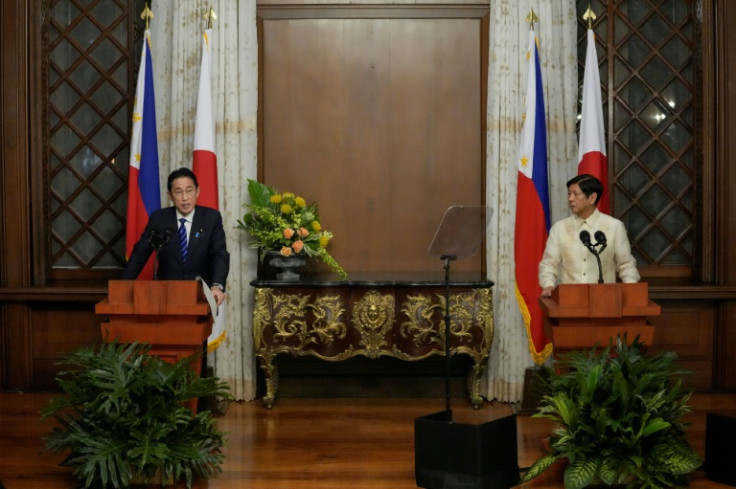Philippines Eyes India, Japan And South Korea Funding For Railway Projects Previously Backed By China

KEY POINTS
- The Philippines might continue three railway projects with the assistance of Japan, India and South Korea
- The projects were previously backed by China and brokered under former president Rodrigo Duterte's administration
- Philippine Transportation Secretary Jaime Bautista said China wasn't "that interested anymore"
The Philippines is looking to continue three railway projects, previously backed by China, with the assistance of Japan, India and South Korea.
Manila might receive funding from the three Asian countries through official development assistance (ODA), said Philippine Transportation Secretary Jaime Bautista.
The official revealed last month that China wasn't "that interested anymore" in financially supporting the railway projects as per previous agreements.
"We're working with some other countries. ODAs, we're exploring these but we can't give any details yet," Bautista said at a forum of the Economic Journalists Association of the Philippines (EJAP) on Monday.
The projects — the Mindanao Railway Project (MRP), the Philippine National Railways (PNR) South Long Haul, and the Subic-Clark Railway — are collectively worth $4.95 billion. They were brokered under the administration of former president Rodrigo Duterte.
Loan negotiations related to the projects began in 2018 with Beijing and were promoted as part of the Duterte administration's friendly policy toward China. But soon after President Ferdinand Marcos Jr. took charge, officials said the three railway projects most likely would not see Chinese funding.
Bautista also said last month that Manila was looking for other alternatives to replace the financial assistance that was previously negotiated with Beijing.
"We have three projects that won't be funded by the Chinese government anymore. We can't wait forever and it seems like China isn't that interested anymore," Bautista said. "So, our government is looking for other sources of funding."
The transportation secretary clarified that territorial tensions with China had no link to the decision to seek other sources of funding.
The Philippines has been confident of getting other supporters to help complete the projects.
"The withdrawal of the official development assistance from China for a railway project should not derail the implementation of our infrastructure programs," Sen. Grace Poe said last month.
"While appearing attractive, the loans are not exactly that benevolent as they come with hefty interest rates and other strings that could be detrimental to the country in the long term," Poe added about the funding from Beijing.
Bautista's latest comments came days after the Philippines decided to exit from China's Belt and Road Initiative (BRI), following the path of Italy.
The Philippines' Department of Transportation announced the full termination of major infrastructure projects partnered with China under BRI and said it would turn to Japan and other Western countries to fill the gap.
The decision is not only a new blow to the Philippines-China relations but also to Chinese President Xi Jinping's trillion-dollar BRI project.
© Copyright IBTimes 2024. All rights reserved.






















